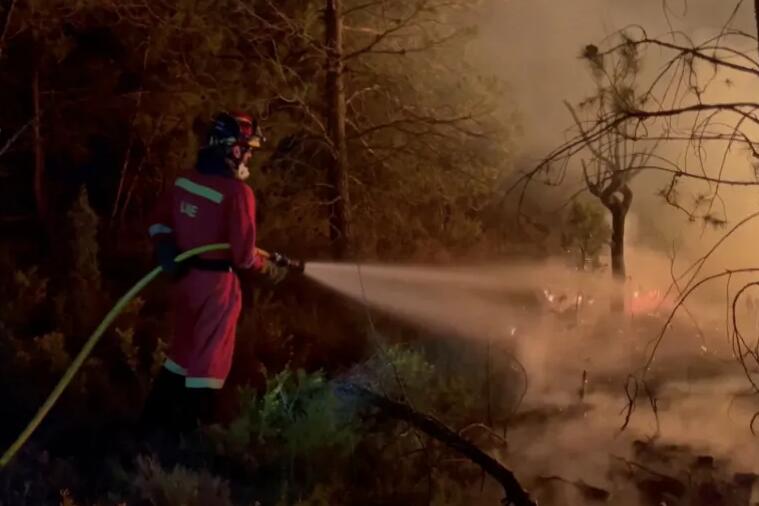Spain’s first major wildfire of the year has destroyed more than 30sq km (11.5sq miles) of forest and forced 1,500 residents to abandon their homes, authorities said.
The evacuations took place in eastern Valencia on Thursday and Friday, state television RTVE reported, citing officials.
More than 500 firefighters supported by 18 planes and helicopters worked throughout the night and on Friday to tackle the blaze near the village of Villanueva de Viver.
Emergency services evacuated eight communities, said Gabriela Bravo, the regional head of interior affairs.
Power was cut in some areas and at least three roads were closed by the authorities.
“We were told to leave as quickly as possible. We grabbed pyjamas and that was that,” an elderly woman told RTVE.
“We are all very concerned,” said Miguel Sandalinas, the mayor of Montanejos, a town of about 550 people affected by the
evacuations.
The AEMET state weather service reported that firefighting was being hampered by high winds, low humidity and temperatures above 20C (68F), relatively high for this time of year.

An unusually dry winter across parts of Southern Europe has reduced moisture in the soil and raised fears of a repeat of 2022 when fires burned 7,850sq km (3,000sq miles) of land in Europe – more than double the annual average of the past 16 years, according to European Commission statistics.
“These fires we’re seeing, especially this early in the year, are once again proof of the climate emergency that humanity is living through, which particularly affects and ravages countries such as ours,” Spanish Prime Minister Pedro Sanchez said at a news conference in Brussels.
The central government in Madrid will provide funds to extinguish the flames and restore the affected area, he said.
In 2022, the country experienced its worst wildfire year since records began. The European Union’s Copernicus Earth monitoring programme recorded 493 wildfires. More than 3,070sq km (1,185sq miles) of land burned, according to the European Forest Fire Information System.
Environment Minister Teresa Ribera said “out-of-season fires” were becoming increasingly common.
“Summer is getting longer, it is arriving earlier, and the availability of water and humidity in the soil is unfortunately being reduced, making us much more vulnerable,” she told reporters in Cadiz.
A European Commission report this month observed a lack of rain and warmer-than-normal temperatures during the winter, raising drought warnings for southern Spain, France, Ireland, Britain, northern Italy, Greece and parts of Eastern Europe.
“There is every reason to fear that this year too there will be numerous and widespread events,” said Lorenzo Ciccarese, a researcher at the Higher Institute for Environmental Protection and Research in Rome.

